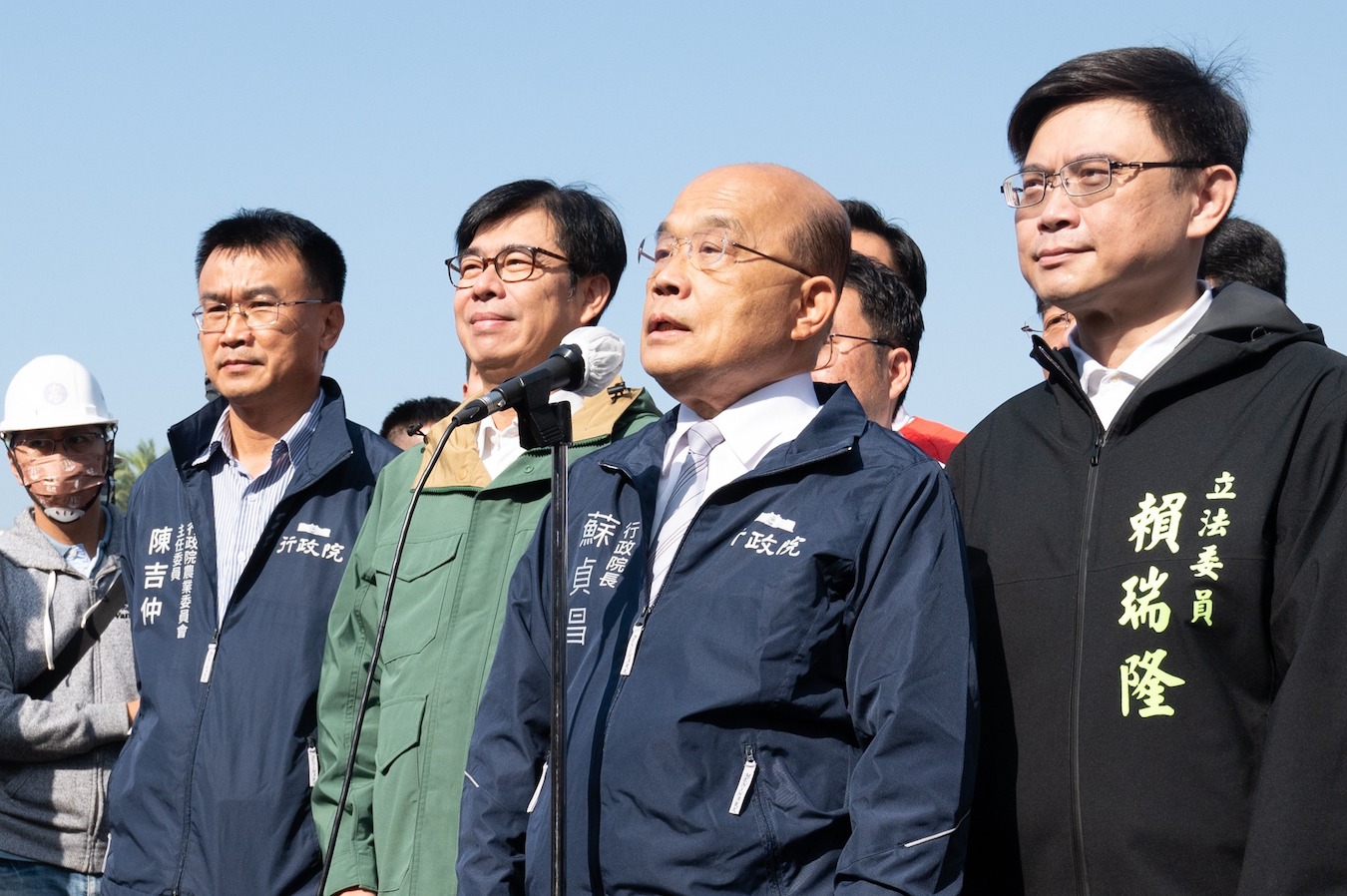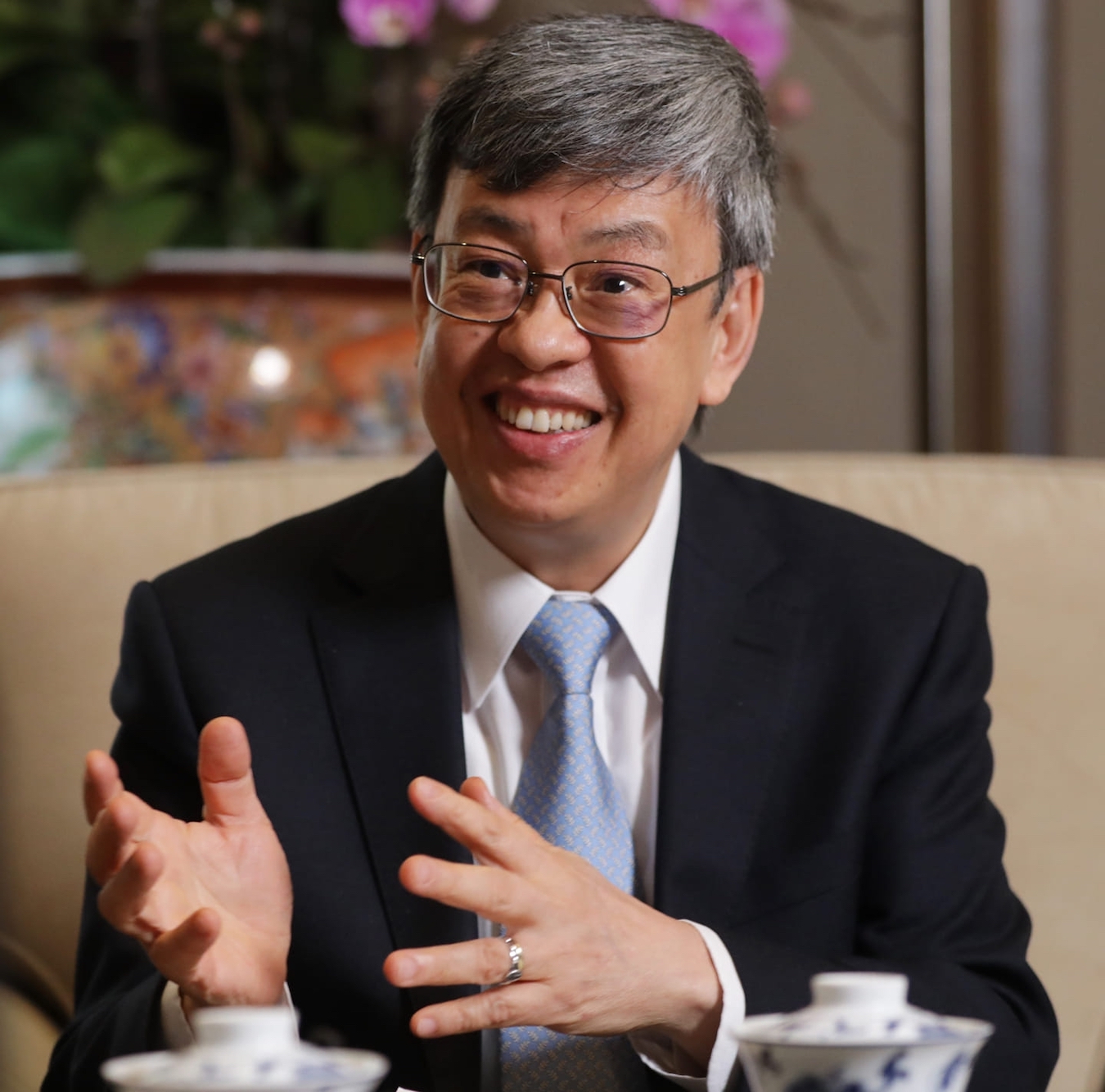by Brian Hioe
語言:
English
Photo Credit: Chen Chien-jen/Facebook
A CABINET RESHUFFLE that took place over the Lunar New Year has swapped out a number of key positions in the Tsai administration.
The cabinet swap took place after William Lai won the chair election for the DPP uncontested, putting him in a strong position to be the DPP’s 2024 presidential candidate. But more broadly, the reshuffle can be seen as a response to the DPP’s defeats in November 2022 nine-in-one elections. Reshuffling the cabinet would be a way of showing the public that the DPP is acknowledging that it has made mistakes and that it is willing to change. This also aims to shore up the Tsai administration’s popularity in her last year in office.
Notably, Premier Su Tseng-chang stepped down, to be replaced by former vice president Chen Chien-jen. Su was the longest-serving premier in Taiwan’s post-democratization history.
 Su Tseng-chang (center) and other DPP officials. Photo credit: Su Tseng-chang/Facebook
Su Tseng-chang (center) and other DPP officials. Photo credit: Su Tseng-chang/Facebook
It is to be seen what the future holds for Su, historically a heavyweight in the DPP. It is possible that Su stepping down has to do with factional contestation in the DPP, with Su’s faction in the DPP weakened compared to Tsai’s or Lai’s factions. Su’s faction was thought to favor Taoyuan mayor Cheng Wen-tsan as the DPP’s presidential candidate.
But Cheng did not challenge Lai for the DPP chair and instead stepped aside, having recently been hit by a plagiarism scandal that resulted in the invalidation of his master’s degree. Cheng’s position was likely also weakened by the failure of any of his successors to hold onto Taoyuan.
Former vice president Chen Chien-jen is an epidemiologist by training, having led Taiwan’s response to SARS. Tsai has stated that Chen will focus on post-COVID revitalization in his premiership, perhaps with the view that part of the DPP’s losses were due to dissatisfaction with its COVID-19 performance. Indeed, the DPP’s most high-profile candidate during the November 2022 elections was former Minister of Health and Welfare Chen Shih-chung. In response, the KMT tried to make its campaign against him partly into a referendum on the DPP’s COVID-19 performance. Chen Chien-jen is also one of Taiwan’s most high-profile Catholic public figures and, as premier, he can perhaps try to shore up ties with the Vatican–a role he previously took on as vice president.
It was previously thought that Tsai would have favored Chen Chien-jen or Cheng Wen-tsan serving as the DPP’s 2024 presidential candidate instead of William Lai. Lai does not have the faith of Tsai after he challenged her for the DPP’s presidential nomination before 2020 elections. Lai, who was defeated, would have been a natural successor for Tsai, but chose to challenge her anyway, perhaps fearing a challenge down the line from Cheng Wen-tsan. But with Cheng’s star on the wane, this does not seem to be a concern.
National Security Bureau (NSB) chief Chen Ming-tong has also been swapped out, to be replaced by deputy minister of foreign affairs Tsai Ming-yen. Chen was the thesis supervisor of former Hsinchu mayor Lin Chih-chien, the most high-profile of the DPP’s candidates hit by plagiarism scandals, which resulted in Lin’s withdrawal from the Taoyuan mayoral race. Chen was also hit by a scandal later on regarding an alleged trip to Thailand at government expense, though other views assert that this was part of Chen fulfilling his duties as NSB chief.
 Chen Chien-jen. Photo credit: Chen Chien-jen/Facebook
Chen Chien-jen. Photo credit: Chen Chien-jen/Facebook
Either way, swapping out Chen, given the controversy, is not surprising. But plagiarism scandals are clearly still not an issue to holding office, seeing as Cheng Wen-tsan has been appointed as vice premier.
Executive Yuan secretary-general Li Meng-yen will remain in his position. Though not a cabinet position, former Taichung mayor Lin Chia-lung will become secretary-general of the Presidential Office under Tsai, as the latest of many posts Lin has been swapped between in recent years, including serving as the DPP’s New Taipei mayoral candidate and Minister of Transportation and Communications. Lin is probably favored by Tsai, with rumors suggesting she would have also considered him as a presidential candidate preferable to Lai. It is to be seen whether the DPP retaining so many politicians swapped between positions leads to the public perception that the reshuffle is just swapping out the same familiar faces.
Though there were rumors that Hsiao Bi-khim would be recalled as representative to the US to serve as foreign minister, this did not take place. Instead, Hsiao will remain in place in Washington DC to try and convince the US that William Lai can be trusted. The US has misgivings about Lai’s past pro-independence stances, but Hsiao is popular in Washington, and so it is thought that she may be able to persuade the US that Lai is not a dangerous pro-independence provocateur.

